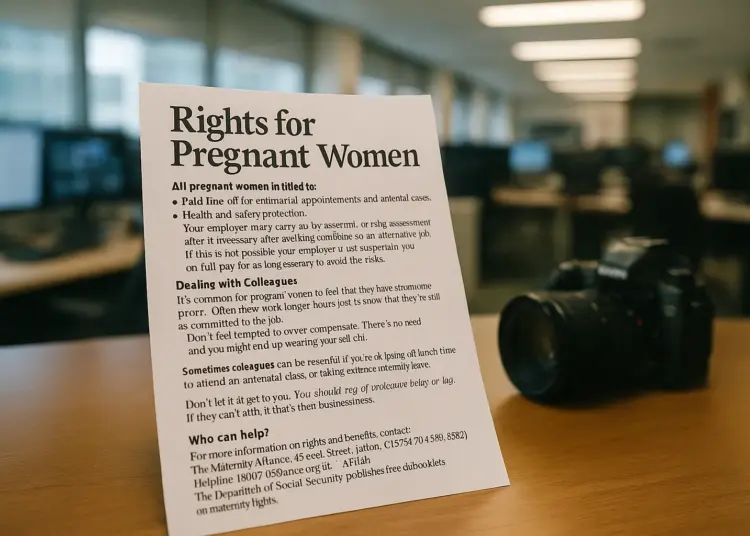Story Highlight
– Pregnant women entitled to paid time off appointments.
– Employers must ensure health and safety protections.
– Dismissal due to pregnancy is prohibited by law.
– Pregnant women should prioritize self-care at work.
– Resources available for maternity rights information.
Full Story
Pregnancy brings numerous changes and a multitude of responsibilities for expectant mothers, particularly in the workplace. In the UK, it is crucial that pregnant individuals understand their rights to ensure they can balance their health and work obligations effectively.
Pregnant women are entitled to specific workplace benefits intended to safeguard their wellbeing during this critical period. Firstly, they have the right to receive paid time off for antenatal appointments and classes. Regular medical check-ups are essential during pregnancy, and these appointments, which may occur during work hours, will not result in a loss of income for the mother-to-be.
Employers are also obligated to uphold comprehensive health and safety protections. According to employment regulations, employers must undertake a thorough risk assessment of the working environment to identify any potential hazards that could affect the health of a pregnant employee. Should any risks be identified, the employer is required to make reasonable adjustments to working conditions. If alterations cannot be made to ensure the safety of the individual, the employer must provide a suitable alternative role or, if necessary, suspend the employee on full pay until the situation can be rectified.
Another critical aspect of employment law is the protection against dismissal related to pregnancy. It is imperative that should a pregnant employee find herself dismissed or treated unfairly during her pregnancy or maternity leave, her employer is legally required to provide a written explanation outlining the reasons for dismissal. In instances where an employee suspects that her dismissal is linked to her pregnancy, it is advisable to seek support from reputable sources such as trade unions or the Citizens Advice Bureau.
Navigating workplace dynamics during pregnancy can also present unique challenges. Many pregnant women may feel the urge to overcompensate by working longer hours or going above and beyond to demonstrate their commitment to their job. However, it is vital to recognise that overexerting oneself can lead to unnecessary stress and fatigue. Maintaining a balanced approach is essential not only for personal health but also for the health of the baby.
It is common for colleagues to have mixed reactions when a coworker takes time off for antenatal classes or extended maternity leave. Some may express resentment towards those who are prioritising their health and family needs. It is important for pregnant employees to remember that their primary responsibility is to themselves and their unborn child, and how others perceive these choices should not detract from that focus.
Professionalism in the workplace is also a consideration for many expectant mothers. While it might be tempting to share pregnancy news or show scan photos with colleagues, maintaining discretion in these matters can be wise. Establishing boundaries regarding personal discussions can help preserve a professional atmosphere.
While pregnant employees can rely on their immediate support systems, there are also several external resources available to assist them. Organisations such as The Maternity Alliance offer valuable information and support regarding maternity rights. They are situated in London, and their contact details include a helpline and an email address for inquiries.
Additionally, a wealth of information is available through the Department of Social Security, which publishes leaflets on maternity rights that can be found at local benefits agencies or post offices. These resources can provide clarification on rights and entitlements, ensuring pregnant individuals are well-informed.
To summarise, understanding and asserting maternity rights in the workplace is essential for expecting mothers. Knowing entitlements such as paid time off for appointments, health and safety protections, and safeguarding against unfair dismissal can empower pregnant women to advocate for themselves and their unborn children effectively. Additionally, maintaining a healthy work-life balance, managing professional relationships, and utilising available resources can contribute significantly to a positive and supportive pregnancy journey in the workplace.






















